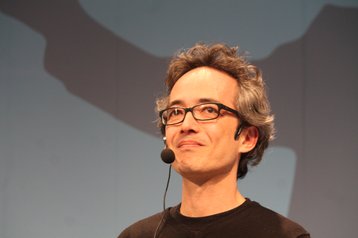French banking giant BNP Paribas has signed up with innovative startup Qarnot Computing, so some of its risk calculations will be carried out in radiators within homes in Paris.
Around five percent of the bank’s risk calculations will be carried out on a cloud computing platform offered by Qarnot, which distributes specialized calculations to servers located in buildings within Paris, where the waste heat can be used to warmhomes, schools and offices. Re-using the otherwise wasted heat will reduce the carbon footprint of these calculations by 75 percent, Qarnot’s founder and CEO Paul Benoit told the DCD at CeBIT event in Hannover, Germany.
Carbon footprint reduced
Qarnot - named after the French father of thermodynamics Nicolas Carnot - offers Q.Rad radiators, each of which contains multiple processors, which work on calculations managed by the firm’s distributed processing system.
The heat from the Q.Rads is offered for free to the places they are installed.
The firm has more than 350 Q.Rads installed, delivering more than 150kW of heat, with a turnover of €1 million. However, BNP Paribas is the biggest client to make a public announcement backing the scheme.
“Through this partnership, BNP Paribas CIB will reduce the energy consumed by its servers,” said David Sibai, of the banks financial engineering, and quantitative research unit. ”The heat generated by these heater/servers is used directly to efficiently heat homes, offices and public buildings”.
Laurence Pessez, BNP’s corporate social responsibility officer said: “We are proud to be the first French bank to engage alongside Qarnot computing. Using this platform, BNP Paribas is thus associated with a social enterprise in the area of green IT.”
Re-using waste heat from data centers has been a major theme at DCD at CeBIT. Yandex’s Finnish data center manager ari Kurvi said that using a disctric heat system to re-use wast heat is “more than a win-win - it’s a jackpot!”
Elsewhere in the conference Mattias Ganslandt of Stockholm’s Fortum Varme described how his district heating system offers cooling as a service to the Bahnhof data center.
Also Jens Struckmeier presented Cloud&Heat, a German startup offering heating with a similar distributed computing system to that offered by Qarnot.

